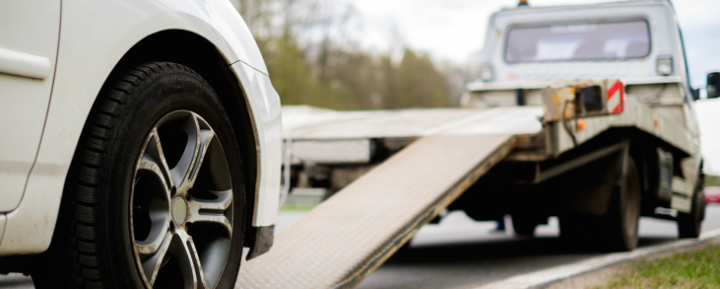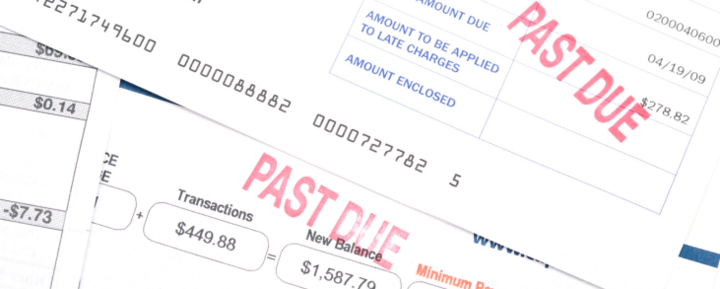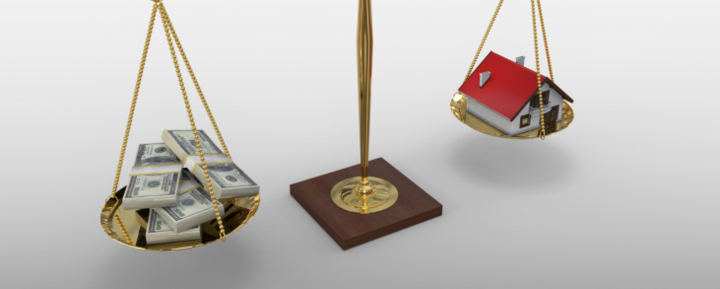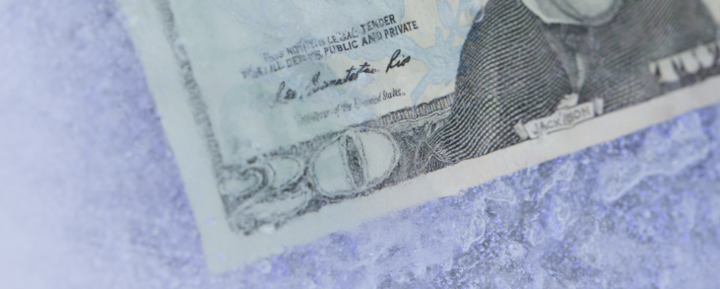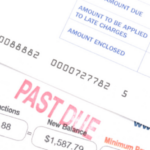Defaulting on your debt can have serious negative consequences, including lawsuits, wage garnishment, and liens against your property. One asset that could be at risk when you default on your debt is your car. Keep reading to learn how car liens work, when a creditor can put a lien on your car, how to protect your car from a lien, and more.
Can a Creditor Put a Lien on Your Car?
The short answer is that yes, a creditor can put a lien on your car if you default on your debt. However, the process varies a bit depending on the situation and the type of debt.
When and Why Creditors Can Place a Lien
The most common situation when a creditor would place a lien on your car is if you’ve defaulted on your loan or missed multiple payments. Technically, certain creditors could repossess your vehicle after a single missed payment, but most wait until you’ve missed several payments.
A lien could be placed on your car in several different ways, and it depends on the situation. In most cases, the lien is the result of a debt collection effort. While these debts are often directly related to the car, they don’t have to be.
Types of Creditors That May Claim a Lien
There are two types of creditors that could claim a lien on your vehicle: a secured creditor and an unsecured creditor. The process for these liens works a bit differently.
Secured Creditors and Car Loans
The most common situation in which a creditor can put a lien on your car is when you have a secured auto loan. With this type of loan, the car serves as collateral for the loan. The loan agreement gives the lender the ability to repossess the vehicle if you default on your payments.
Unsecured Creditors and Debt Collection Lawsuits
The other situation where a creditor could place a lien on your car is if you have unsecured debt. However, it’s a bit more complex on the lender’s part in this case. The loan agreement doesn’t give the creditor the legal right to automatically place a judgment lien on your car — they must first sue you and get a judgment from the court to do so.
Can Creditors Place a Lien for Unpaid Debts Other Than Car Loans?
A lender on a secured car loan has the easiest time placing a lien on your vehicle since the loan agreement allows them to do so. However, other lenders and debt collectors can also place liens for unpaid debts by suing you and getting a court judgment.
Types of debts that may result in a car lien include personal loans, credit card debt, mechanic’s liens, child support, or unpaid taxes. Essentially, anyone you owe a debt to could sue you and, if you don’t pay the judgment as ordered, get a lien on your car.
How a Car Lien Affects You
When a lien is placed on your car, you no longer solely own the vehicle. A lien is placed on your car’s title, and the lienholder also has a legal claim to it. When you buy a car with a loan, the lender is automatically put on your title as a lienholder, giving them the right to repossess the vehicle if you don’t make your car loan payments. The lien will only be removed from the title once you’ve fully repaid your debt.
Having a lien on your vehicle could make it more difficult to sell. You’ll either have to pay off the debt before you sell or sell it through a specific service — for example, a dealership, your lender, an escrow service, etc. — so the lien is paid off with the proceeds from the sale.
While it’s technically possible to sell a car with a lien to a private buyer, you’ll likely be hard-pressed to find a buyer who agrees to that.
Having a lien placed on your car title doesn’t directly affect your credit score, but there could certainly be an indirect impact. For example, if the lien is there because you’ve missed payments on your car loan or another debt, you can trust that those missed payments are on your credit report and are damaging your credit score. If your debt is in collections, that would also appear on your credit report.
Legal Process for Placing a Lien on a Car
The legal process of placing a lien on a car varies depending on the type of debt. As we mentioned, if you buy a car with a secured loan, you’ll automatically have a lien on your title. It will remain there until you’ve paid off your car loan, and it gives your lender the right to repossess your car if you don’t make your payments.
For other types of debt, the process takes a bit longer. Here’s how it works:
- If you’ve defaulted on your debt, the lender could sue you.
- Assuming the debt is yours, a judge would likely issue a judgment requiring you to repay the debt, possibly with legal fees and other penalties.
- If you fail to pay the judgment as ordered, you may have a lien placed against your car.
Note: Some states exempt certain property from being seized to repay court judgments. The exempt property often includes your car (except in the case of a secured auto loan). As a result, a creditor may not always be able to place a lien on your car due to an unpaid unsecured debt. Depending on your state, the exemption may only cover a certain dollar amount of property.
How to Remove a Lien on Your Car
If you’ve had a lien placed on your car, you’re probably wondering how you can get it removed. There are a few different ways you can remove a lien from your car title.
Paying Off or Settling the Debt
The simplest way to remove a lien from your car is to simply pay off the debt. In the case of a car loan or any other unpaid debt that has resulted in a lien, once the debt is repaid, the lien is removed. Alternatively, if you can’t afford to repay the full balance, you may negotiate with your lender to settle the debt for less than the full balance and still have the lien removed but you may have lost the vehicle in the process to repossession. It may be wise to contact a debt help attorney who specializes in helping resolve and settle debt.
Negotiating a Lien Release with Creditors
In some cases, you may be able to negotiate with your lender to have the lien removed from the vehicle. However, a lender is unlikely to agree to this unless you’ve given them some other assurance, such as repaying the loan.
Legal Options to Challenge or Remove a Lien
If you believe a lien has been incorrectly placed on your car or wasn’t removed when it should have been, you can contact the lienholder to request they remove the lien. If the lienholder either doesn’t respond or refuses to remove the lien, you may need to seek legal advice to learn what other options you have.
Understanding Legal Protections Against Car Liens
If you have a lien against your car or are worried you will soon, it’s important to understand what legal protections you have.
First, know that having a car lien is incredibly common. Anyone who purchased a car with a secured debt has a lien against their car. It doesn’t necessarily mean the car is being repossessed — it just means the lender has the right to repossess the car if you fail to make your loan payments.
However, if you genuinely are at risk of having your car repossessed, there are a couple of things that may help you.
What Does it Mean to Be Judgment-Proof?
If someone is judgment-proof, it means they are financially insolvent and unable to pay their debts. In most cases, this means they have little to no income or assets that a creditor could take to satisfy a loan or judgment.
If you’re judgment-proof, it means there’s nothing to seize to pay off your creditors. A creditor may be less likely to sue you if they know you’re judgment-proof, so notifying your lender of this ahead of time may help prevent a lawsuit altogether. Seek out a debt relief attorney to go over the details of your situation and advise you appropriately.
What Is the Personal Property Exemption?
Many states have a personal property exemption for court judgments. In other words, certain personal property is exempt from having to be used to pay a lender that has sued you. In most cases, this exemption is for up to a certain dollar amount.
For example, if your state has a personal property exemption of $8,000, you can keep any property that’s worth less than $8,000. If you have an outstanding loan on your car, its personal property is based on your equity in the vehicle, not the car’s entire value. For example, if you have a $10,000 car and a car loan of $5,000, you have $5,000 of personal property in the vehicle.
It’s important to note that this exemption doesn’t apply to auto loans. If you have a secured car loan and default on the loan, your lender still has the right to repossess the vehicle.
Can Bankruptcy Help Protect Your Car from a Lien?
If you have a lien against your car and can’t repay the debt, bankruptcy may help you out of your current situation. The treatment of liens varies depending on whether you’re filing Chapter 7 or Chapter 13 bankruptcy.
How Chapter 7 Bankruptcy May Help Prevent or Remove a Lien
In most cases, Chapter 7 bankruptcy won’t help you get rid of a lien from a car loan. Technically, bankruptcy can wipe out your car loan debt, which releases you from your legal obligation to pay the debt. However, it doesn’t eliminate the lien from your car. Unfortunately, this means the lender can still repossess the vehicle if you don’t repay the loan.
That being said, you can likely have a lien from a court judgment removed in Chapter 7 bankruptcy, especially if the value of your vehicle is under your state’s personal property exemption. These are considered involuntary liens because you didn’t enter into them voluntarily the same way you did your secured car loan.
How Chapter 13 Bankruptcy Can Help You Keep Your Car
Chapter 13 bankruptcy may help you keep your vehicle when you file Chapter 13 bankruptcy, but it won’t necessarily remove the lien.
When you file for Chapter 13 bankruptcy, you’ll be put on a repayment plan to pay off some or all of your debt. If a lender has a lien against your car, they can’t repossess the vehicle during the bankruptcy process. And as long as the repayment plan repays your missed car payments, they can’t repossess after the bankruptcy either.
In fact, if you had your car repossessed shortly before filing for Chapter 13 bankruptcy, you may even be able to get your car back if your repayment plan brings you up-to-date on your car payments.
In the long run, Chapter 13 may also help you reduce the amount you have to repay on your car loan. The repayment plan may reduce the loan balance to the property’s value — this is helpful if you’re underwater on your car, or reduce your loan interest rate.
Conclusion – Protecting Your Vehicle from Creditor Liens
A car lien is one of many tools that lenders, especially auto loan lenders, can use to collect unpaid debts. You could face a car lien as a result of either secured or unsecured loans, but they’re most common when you use a car loan to buy your vehicle.
If you’re facing a car lien and aren’t able to repay the debt, consider getting the help of a debt relief attorney. Tayne Law Group has been helping borrowers with debt challenges for more than 20 years. We can look at your situation and advise you on your options. Call us today at (866) 890-7337 or fill out our short contact form to schedule a free phone consultation. There’s no obligation, and we never share your information.
